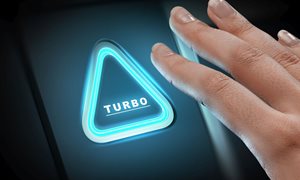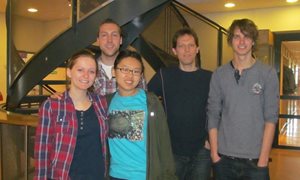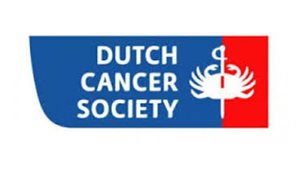30 November 2018
that enable specialists to diagnose and treat rare or low prevalence diseases. They aim to provide highly specialised treatment and to concentrate knowledge and resources. ERNs are being set up under the EU Directive on Patients' Rights in Healthcare (2011/24/EU), which also makes it easier for patients to access information on healthcare and increase their treatment options. There are 24 ERNs involving 25 European countries (including Norway) and more than 300 hospitals with over 900 healthcare units covering all major disease groups. These 24 specialised networks are working on a range of medical issues including bone disorders, childhood cancer and immunodeficiency. The ERN initiative receives support from several EU funding programs, including the Health Programme, the Connecting Europe Facility and Horizon 2020.
 The European Reference Networks are featured in the Commission's EU Protects campaign which aims to raise awareness of the ways in which the EU combats global challenges to protect its citizens.
The European Reference Networks are featured in the Commission's EU Protects campaign which aims to raise awareness of the ways in which the EU combats global challenges to protect its citizens.
The background of this video
As many as 8,000 rare diseases affect the lives of around 30 million people in the EU every day. Many of those affected by a rare or complex disease do not have access to diagnosis and high-quality treatment, since no country alone has the knowledge and capacity to treat all rare diseases and conditions. European Reference Networks (ERNs) are virtual knowledge-sharing networks involving healthcare providers across Europe. These networks give patients and doctors across the EU access to the best expertise, while facilitating the timely exchange of life-saving knowledge, often without the need to travel to another country. The EpiCARE network brings together 28 highly specialised health centers in 13 European countries, all of whom have expertise in rare and complex forms of epilepsy.The story
Last year, EpiCARE took on the case of a 4-year-old Finnish boy with a rare abnormality in the brain, causing him to have between 20-30 seizures each day. This was a very specific disorder of which only a small number of medical centres in the world have experience. A decision therefore had to be made on what kind of treatment to suggest – Gamma Knife® surgery, only available in 2 centres, or surgical resection, only performed in 3-4 centres. The doctors in Finland presented the case to the network, with 7 other countries present (Italy, UK, France, Spain, Romania, Sweden, and the Netherlands). After reviewing the different treatment options, it was decided that the child should go to Marseille for Gamma Knife surgery®. The surgery was successful, and although the boy still experiences seizures, their number has been drastically reduced.The objective
The story aims to introduce readers to the principle of European Reference Networks and the value of the knowledge sharing they enable. Through the story of this particular young patient, audiences will understand that cooperation at an EU level makes a real difference to both patients and their families, as well as to the health professionals that care for them. Due to the rarity of such complex conditions specialist knowledge is scarce, fragmented and often not available in the patient's region or even country. Many patients therefore do not get satisfactory explanations for their symptoms and have difficulties finding a specialist with the necessary knowledge about treatment options. By consolidating knowledge and expertise scattered across countries, the ERNs give healthcare providers access to a much larger pool of expertise. This story demonstrates that the ERNs improve the chances of patients receiving accurate diagnoses and advice on the best treatment for their condition.The European reference networks
European Reference Networks (ERNs) are unique and innovative cross-border cooperation platformsthat enable specialists to diagnose and treat rare or low prevalence diseases. They aim to provide highly specialised treatment and to concentrate knowledge and resources. ERNs are being set up under the EU Directive on Patients' Rights in Healthcare (2011/24/EU), which also makes it easier for patients to access information on healthcare and increase their treatment options. There are 24 ERNs involving 25 European countries (including Norway) and more than 300 hospitals with over 900 healthcare units covering all major disease groups. These 24 specialised networks are working on a range of medical issues including bone disorders, childhood cancer and immunodeficiency. The ERN initiative receives support from several EU funding programs, including the Health Programme, the Connecting Europe Facility and Horizon 2020.
Related news items

Turbo Grants for four medical-technical research projects
19 October 2021 Four TURBO grants were recently awarded to new technical-medical research proposals. The grants are part of the TURBO program, a collaboration between the University of Twente (TechMed Centre) and the Radboudumc. read more
Miniaturized microfluidic platform for automated epigenetic profiling
6 May 2021 Together with Fluidigm, a US-based company focusing on microfluidics, the team of Hendrik Marks publishes in Genome Research the development of a powerful plug and play ChIP-seq platform for minute amount of cells, such as embryonic specimens or small biopsies. read more
KWF Roadshow 11 November 2019
10 October 2019 In which way(s) can KWF provide optimal support to oncological research and care? How can we maximize impact on our investments? These questions are pivotal in Ambition 2030: the vision that KWF developed in close cooperation with stakeholders in the oncological field. read more
Internal KWF review procedure 2020
13 June 2019 In agreement with the existing policy the research board and Radboud Center for Oncology have decided to continue with the mandatory internal review procedure for KWF grant applications. read more
Internal KWF review procedure 2019
4 April 2019 In agreement with the existing policy the research board and Radboudumc Center for Oncology have decided to continue with the mandatory internal review procedure for KWF grant applications. read more
